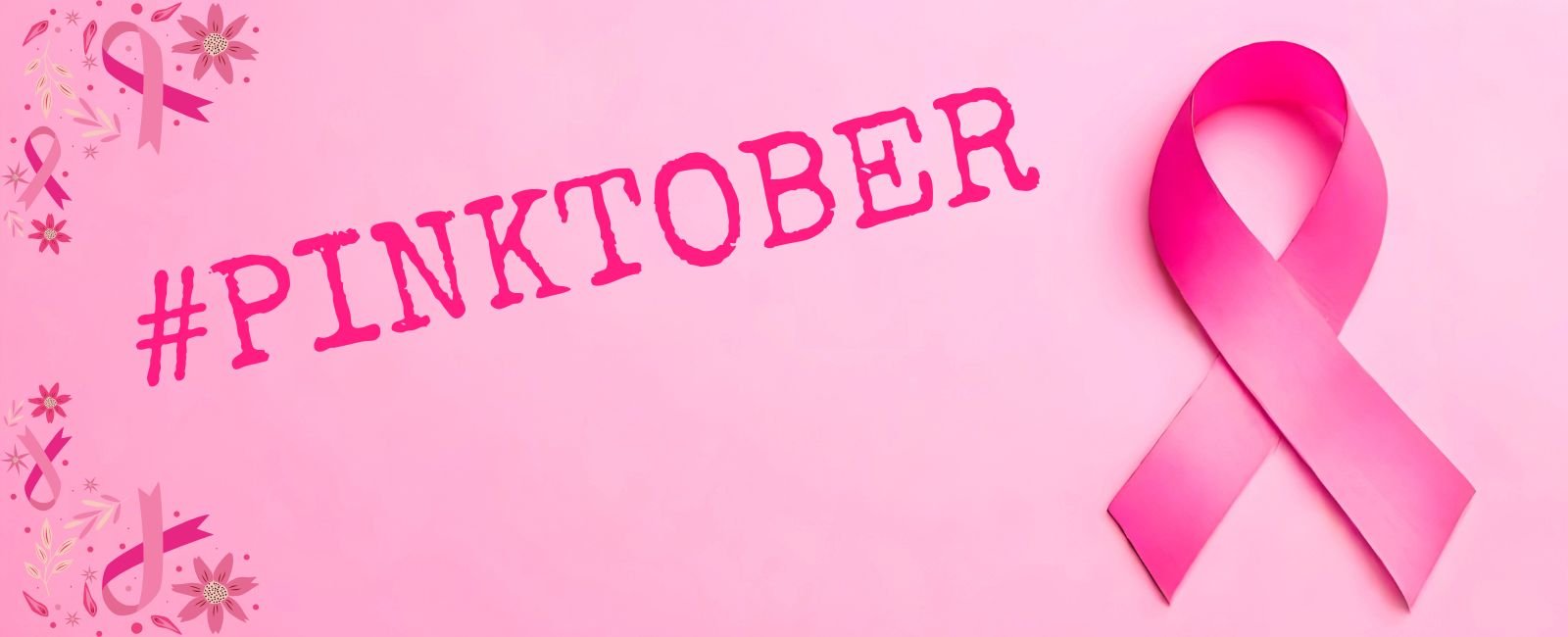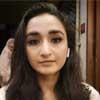Beyond remission and recovery: What no one tells you about breast cancer

When 29-year-old Moizza first felt the small lump under her skin, she assumed it was a blocked milk duct as she was breastfeeding her toddler. Living with her in-laws in Dadu, hours away from any major hospital, she did what she could. "I was massaging it to relieve the duct," she recalls softly. "Doctors I consulted online said if there is no rash, redness, itching, or pain, don’t worry." Weeks later, after travelling to Karachi, the lump had grown, and the diagnosis shattered her world.
Moizza began her first round of chemotherapy last September. "My biggest fear is what would happen to my son if I died."
This is the reality of thousands of Pakistani women who are unaware of how the disease can attack them. Every ninth Pakistani woman is at risk of developing breast cancer, the highest incidence in Asia, according to the Global Cancer Observatory (GCO), World Health Organisation (WHO) 2024 statistics. Pakistan lacks a national registry, meaning the actual burden is unknown, but data from Shaukat Khanum’s 1994–2024 registry shows breast cancer remains the most common malignancy among adult women.
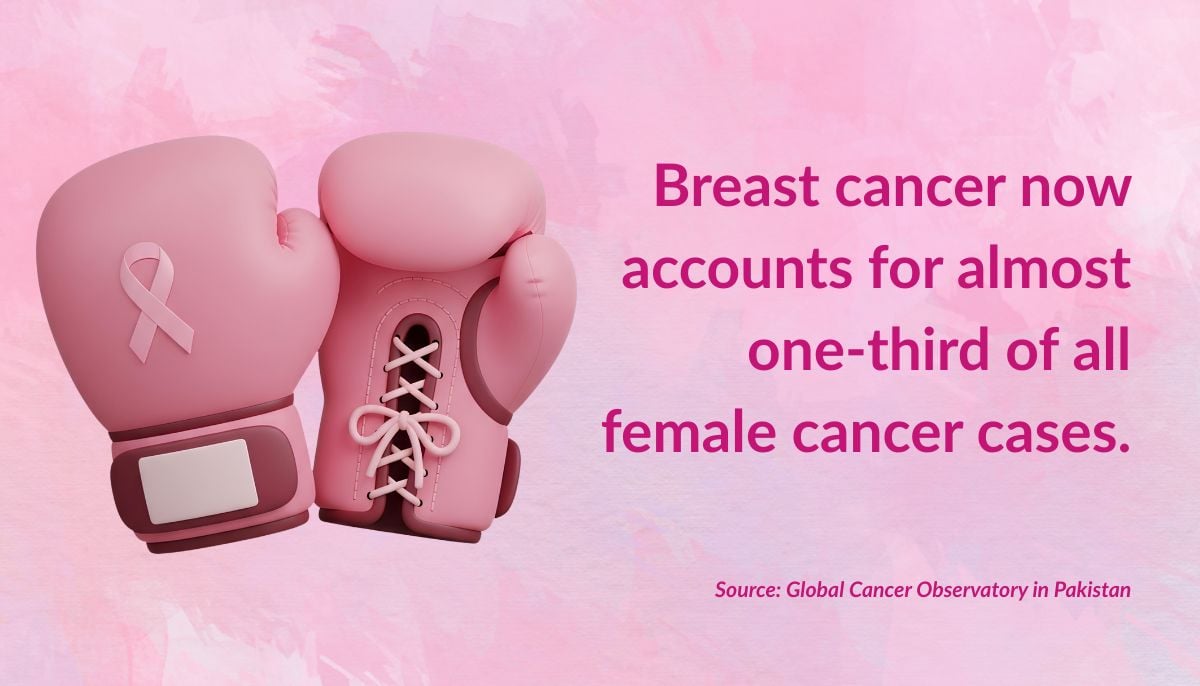
Breast cancer now accounts for almost one-third of all female cancer cases, according to the Global Cancer Observatory in Pakistan. Just in 2022, 30,682 new breast cancer cases were reported in Pakistan, more than any other cancer in the country. At least 15,500 women lost their lives to the disease that same year.
Late diagnosis, while on part depends on the lack of facilities in the country, but also on the reluctance of patients. Patients walk in when the pain becomes unbearable. Sometimes, after months of applying home remedies or hiding symptoms, if not years. “Another big reason for delay is misconceptions that faith healing or home remedies will cure it. In these things, patients waste a lot of time until the disease has largely spread, and complete treatment is no longer possible,” adds Dr Tahira Yasmeen, a medical oncologist at Shaukat Khanum Hospital.
The rise of breast cancer in young women
In the past, breast cancer was thought to be a disease of middle age, something that happened after forty or during menopause. But in hospital wards across Pakistan, that image is changing. The faces are younger now: mothers in their twenties, professionals in their early thirties, newlyweds who never imagined this would happen so soon.
Doctors report an increasing number of patients under thirty-five. “We have a lot of young women who present with advanced breast cancer disease,” says Dr Ahsan Mumtaz Rao, a breast and oncoplastic surgeon at Shaukat Khanam Hospital.
Dr Munira Moosajee, section head medical oncology at Aga Khan University, adds that while more early-stage diagnoses are emerging, “the worrying pattern is the number of younger women walking through our doors. One reason is genetic mutations that predispose to cancer at an early age. Pakistan, specifically, for some reason, has a much higher incidence of breast cancer than India or other parts of the world. This is an area of ongoing study.” She calls for national research to explain why this is the case.
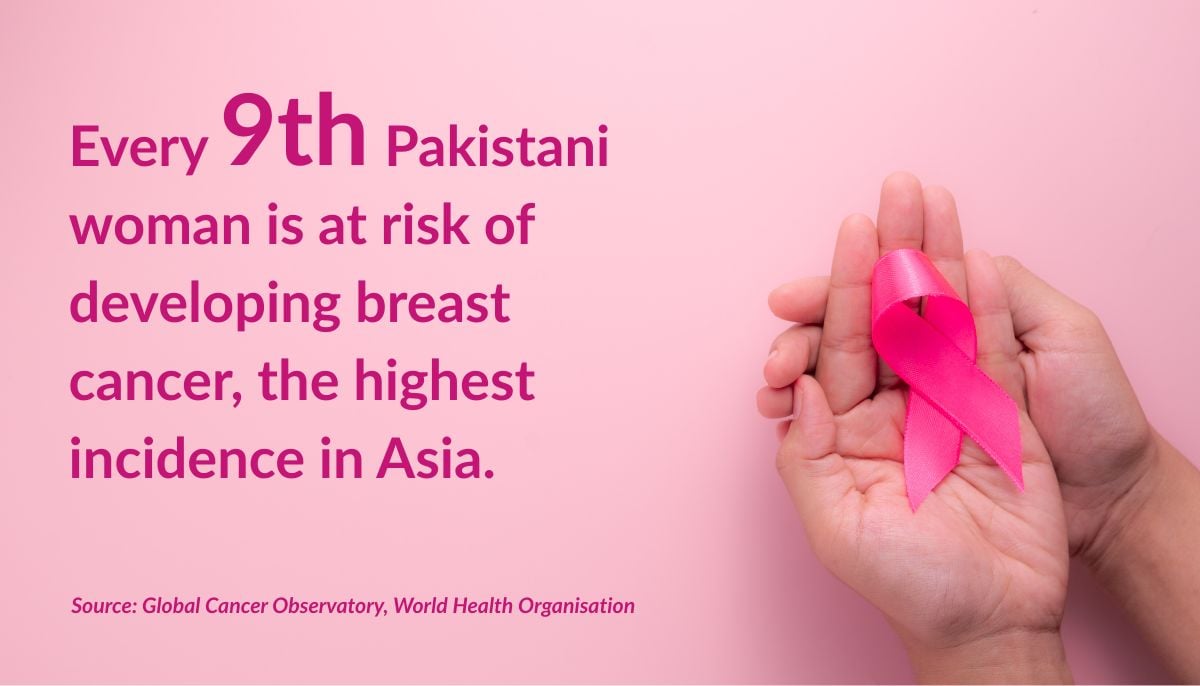
Dr Tahira added that “Around 20% of breast cancer cases are due to family genes or history, and these are usually aggressive tumours found in younger women. They also increase risks for ovarian, thyroid, or bowel cancer.”
Samina, 56, who had watched her mother lose her battle with cancer, thought she was prepared for the results, “The day I received the biopsy report, I was emotionally affected, as my mother also passed away due to cancer, and I have seen all her pains & problems. But I remained strong in my faith”.
For some, the explanation lies in lifestyle and environment. "Early puberty, late marriages, and delayed childbirth all contribute," Dr Tahira explains. “Add to that the artificial foods, hormonal changes, obesity, and stress of modern living; these are all risk factors we see.” But she is quick to add: "There is still much we don’t know. We have associations, not causes."
At Aga Khan University Hospital, Dr Munira echoes the same uncertainty. “We are seeing a global trend of earlier onset cancers, not just breast cancer. In Pakistan, it’s particularly concerning. Our diets, lack of exercise, and growing rates of obesity could be linked, but we need rigorous research.”
The absence of a national cancer registry, she explains, makes it impossible to understand how and why the disease behaves differently in this region. “We are working in silos.” AKU has its data, Shaukat Khanum has its own, but one system is needed that can help doctors and researchers study who is being affected, at what age, and where, to be able to design real prevention strategies.
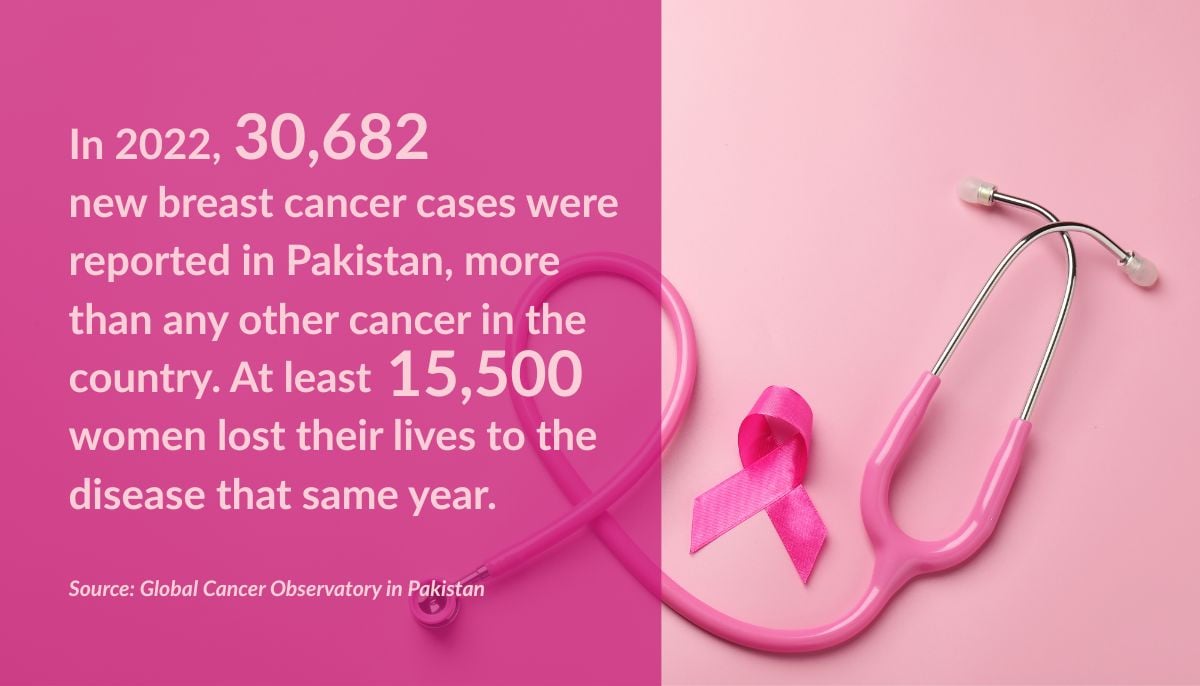
The numbers that do exist tell a sobering story. In 2024 alone, the Shaukat Khanum registry added over 9,600 new cancer cases, with breast cancer remaining the leading malignancy among women. Across Pakistan, oncologists report that many of these women come from smaller towns and places where self-examination is taboo, mammograms are unavailable, and stigma runs deep.
Dr Ahsan says the lack of early screening is what makes Pakistan’s picture so different from the West. “In the UK, most women over 50 years of age are regularly screened, and only 10% to 15% of cases are advanced. In Pakistan, we don’t have that system. Most of our patients arrive when the cancer is already stage three or four.”
Dr Munira notes that the consequences go beyond medical outcomes. They are not just treating cancer; they are treating the shock of diagnosis at a young age when women are raising families, building careers, or just beginning their lives. “Younger women face unique challenges; many haven’t started families or gotten married, and loss of fertility due to chemotherapy is a known risk. We work with them on ovarian suppression or egg/embryo preservation.”
Moizza’s recurrence this year, barely months after finishing radiation, is one of those cruel reminders. “They told me triple-negative breast cancer has a higher chance of coming back,” she says quietly. “I try not to think about it. I take therapy, I pray, and I keep going for my son.”
Breaking myths, mending minds
When Gulnaz was told she had breast cancer at 28, her first reaction wasn’t disbelief; it was isolation. Her husband made it clear that whether she survived cancer or died from it meant nothing to him. Her in-laws whispered that her illness was punishment for her sins. “People said I must have done something wrong,” she remembers. “They said cancer is Allah’s curse.”
The stigma nearly broke her before the chemotherapy could. During her treatment, her hair fell, her body changed, and her marriage fell apart. “I looked at myself in the mirror and didn’t recognise who I was,” she says. “But my daughter was young, I had to live for her.”
This is a story doctors hear far too often. Husbands abandoning wives because in-laws refuse to care for a sick woman, or because they see cancer as a death sentence. For many, a diagnosis means not just the loss of health, but the loss of a home and the cruel judgment that they will never be able to bear children again.“One patient told me her husband said he couldn’t live with an ‘incomplete woman’ after one of her breasts was removed. In another case, a young woman was divorced after diagnosis,” shares Lubna Ghazal, associate director of nursing at a private medical university and a PhD scholar in mental health.
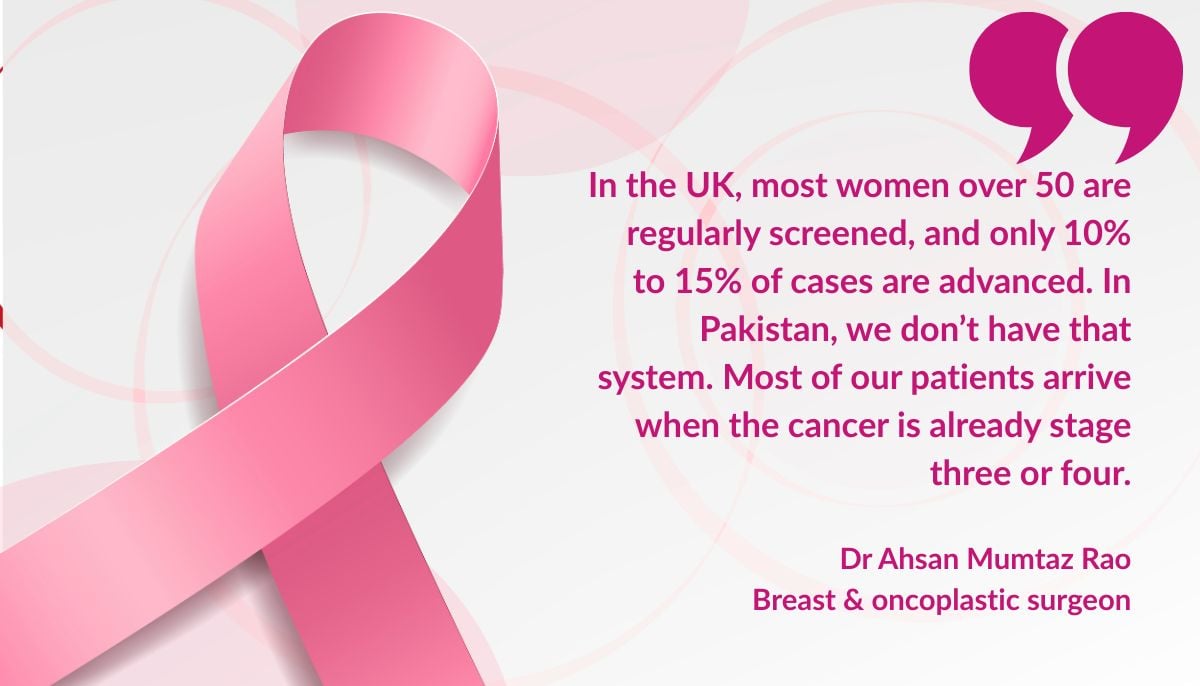
Dr Tahira notes other myths that continue to influence how patients approach the disease. “We still have women who believe breast cancer spreads if you touch metal, wear black, or eat certain foods,” she explains. She notes that family reactions often determine survival as much as medical treatment. “If a woman’s husband or parents support her, she completes her treatment. If they shame her or isolate her, she gives up.”
That emotional neglect is what psychologists call the “second wound,” the trauma that follows diagnosis. “The first shock is medical, the second is social,” says Nosheen Qureshi, Senior Clinical Psychologist at Shaukat Khanum. “Patients face fear, guilt, loss of control, and shame. Hair loss, mastectomy scars, and fatigue deeply affect their sense of self.”
Nosheen explains that many women refuse mirrors, stop attending family gatherings, or hide their diagnosis altogether. “Our society ties femininity to appearance. When a woman loses a breast, she feels she has lost her identity.”
For Tatheer Zahra, a clinical psychologist, this suffering extends to families as well. “Caregivers, mothers, daughters, husbands all experience anxiety and depression,” she says. “When families are compassionate, it becomes easier for patients to heal. When they withdraw, the damage is doubled.”The survivors we interviewed shared stories woven with both courage and fear, of parents falling ill from worry, of families flying in to see them, perhaps for the last time. Their loved ones bore the burden of cancer alongside them, making emotional, financial, and physical sacrifices to sustain treatment and everyday life. The illness weighed heavily not only on the patients but on entire households.
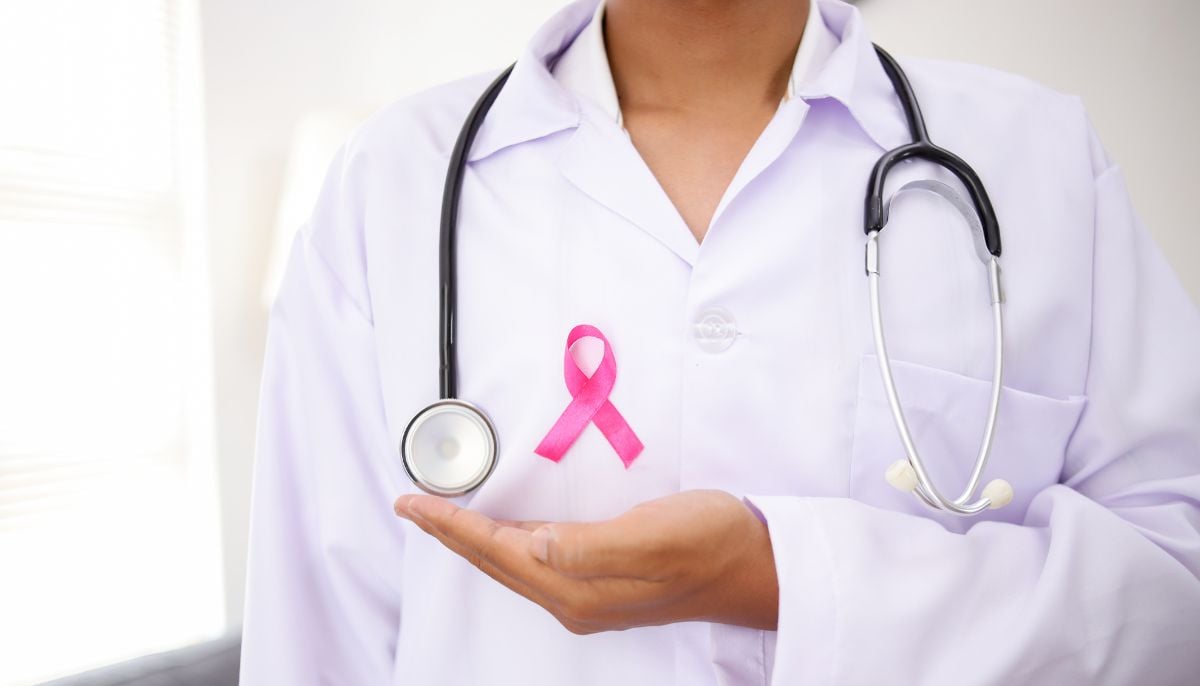
Adding to this strain were the cruel whispers and judgments from others. As one survivor recalled, “I heard things like, ‘you’re not going to survive,’ or ‘you’ll die like your aunt. Your daughter might also carry the gene, who will marry her?” Therapy during treatment can make a world of difference, helping patients and families process fear, pain, and uncertainty. But in Pakistan, where there are no walk-in clinics and mental-health care isn’t free, it remains a distant luxury for most.
Recognising this gap, Khusro Mumtaz founded Humsafar, Pakistan’s first dedicated cancer support group in Karachi. After losing his wife and sister to the disease, he realised that while hospitals treat bodies, few heal emotions. “Our meetings are safe spaces,” he says. “Patients share their fears without judgment, and caregivers finally exhale.”
Humsafar’s gatherings are simple chairs in a circle, quiet faces, and the comfort of being understood. A breast cancer survivor once told the group that her relatives said her illness was divine punishment for arranging "failed marriages". "The others told her it wasn’t her fault,” Khusro recalls. “She left the room lighter.”
Such empathy is rare in Pakistan’s healthcare system, where mental health remains an afterthought. *Mrs Asher, a retired 64-year-old teacher who was diagnosed five years ago during COVID, recalled how doctors misled her and dealt with her harshly during her treatment.
"Some doctors were not very accommodating. One biopsy was delayed, and I had to switch doctors because of their behaviour. Even at Shaukat Khanum, doctors were not very accommodating to patients. They told me they cannot treat patients above 55 years of age due to low survival rates."
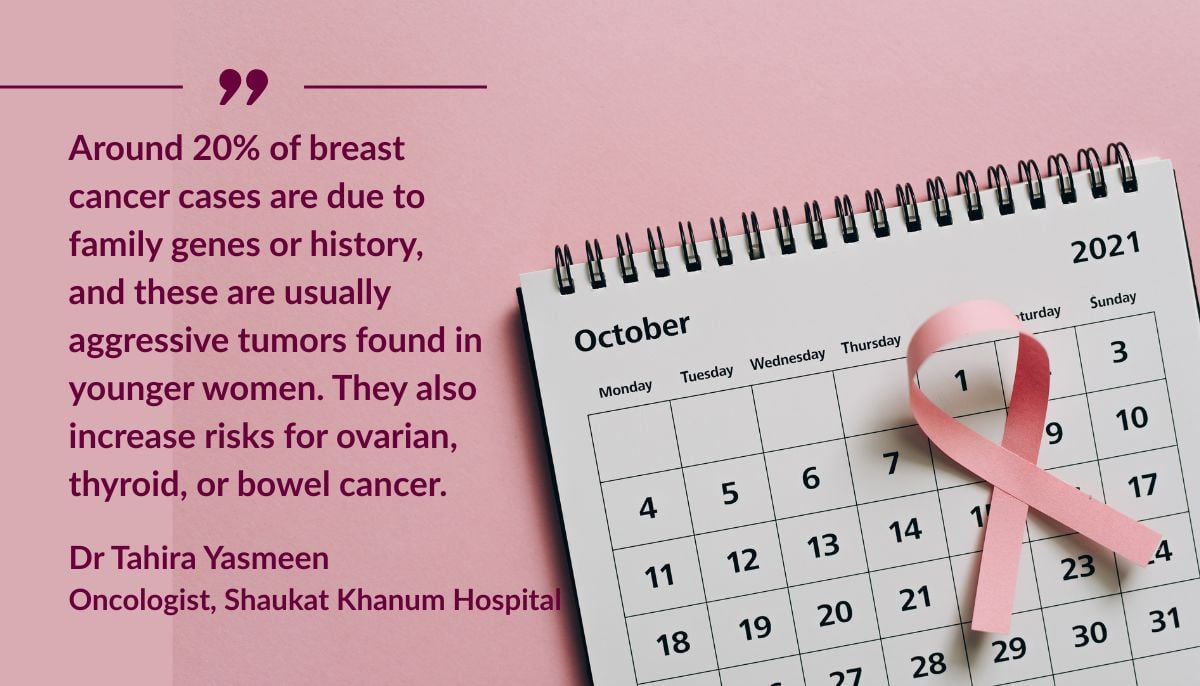
During her chemotherapy at a private establishment in Lahore, when she asked questions, her oncologist was dismissive. "She flipped my file at me and said, 'If you have so many questions, you can get your chemo somewhere else.'" Later, she got her chemotherapy done from Anmol in Lahore.
Ghazal says Shaukat Khanum is now training breast nurse navigators to recognise emotional distress early. “Women go through denial, anger, and depression,” she says. “When a nurse holds their hand during diagnosis, it changes everything.”
Cancer may begin in the body, but it lingers in the mind. The chemotherapy ends, but the fear remains. For Mrs Asher, Moizza, and many others, the fear of return is constant. Regular check-ups every year and the wait for results constantly weigh on them.
Yet for survivors like Gulnaz, 12 years down the line, healing meant rebuilding her life from the ashes of illness and abandonment. “People think survival means you beat cancer,” she says. “No survival means you find yourself again.”
Healing, hope, and way forward
Radiations and chemotherapy drain people of hope and dreams, while vital for recovery, doctors now claim that treatment options today are far more advanced than they were a decade ago. Dr Munira explains that chemotherapy is no longer the only lifeline. “Cancer treatment has become tumour-specific,” she says. “Targeted therapies and immunotherapies now help us treat cancers more precisely, with fewer side effects. It means women live longer, better lives.”
With advancements in technology and medicine, patients in Pakistan can have access to better options. Dr Ahsan notes that surgery techniques have drastically changed, working on the preservation of beauty and time. “We now perform breast-conserving surgeries, lumpectomies instead of full mastectomies, and even reconstruction in the same operation,” he says. “It helps women heal not just physically, but emotionally. They feel whole again.”
But prevention is of utmost importance in Pakistan, where over 100 women die of breast cancer each day. “Early detection is everything,” says Dr Tahira Yasmeen. “If caught in Stage I or II, breast cancer is almost completely curable. But most women come too late because they’re ashamed, unaware, or simply too far from help.”
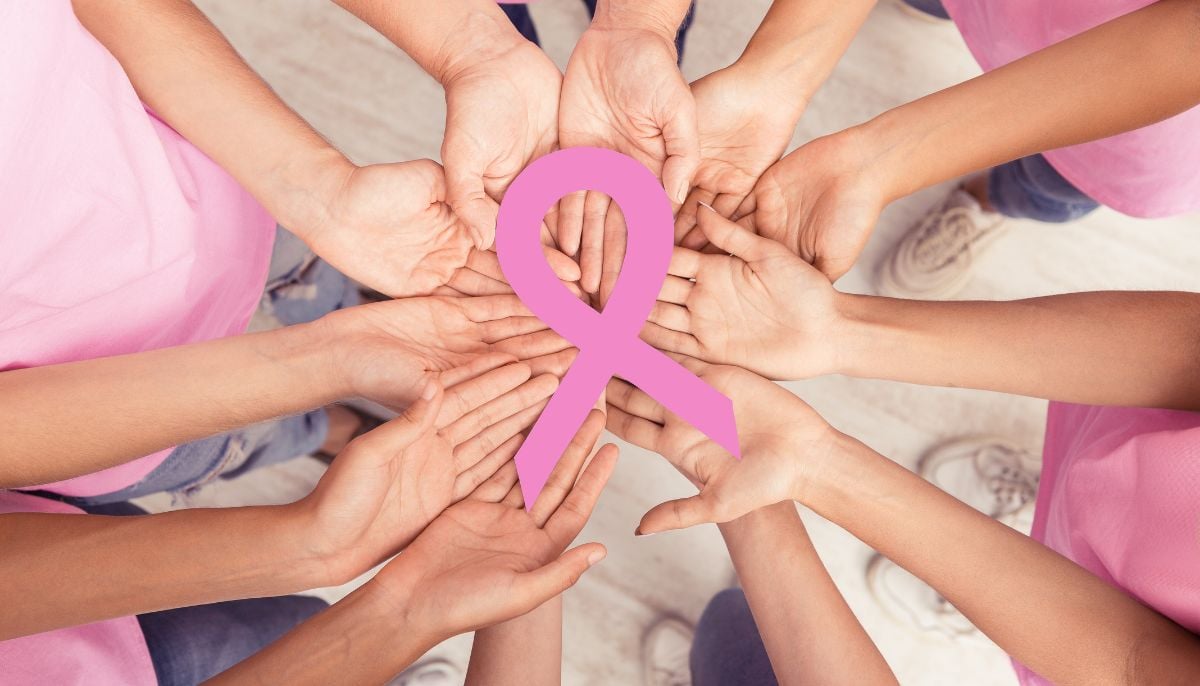
Breast cancer awareness must not be limited to a month, with slogans reaching only a few. There must be a living room, classrooms, and everyday banter to remove the element of shame and secrecy associated with the disease. Pakistan needs community-based screening drives, breast-health lessons in schools, and routine mammograms for girls and women, along with empathy, which begins at home, in how families listen, how doctors speak, and how people should see women, not just as patients, but as people fighting to live.
Hospitals like Shaukat Khanum and Aga Khan University are now introducing psycho-oncology services and breast nurse navigator programs, a vital shift toward patient-centred care. Survivors also call for change in the system, encouraging awareness campaigns, lessons on self-examination, emotional support to become part of the treatment plan, not an afterthought, with counselling for patients and families to help them face the fear together. “We need compassion as much as chemotherapy”.
Psychologists Tatheer and Nosheen agree that Pakistan’s cancer care is incomplete without mental health integration in the system, urging hospitals to embed trained psychologists within oncology teams, offering emotional screening from diagnosis to remission. We must address the stigma around mental health, physical appearance, and the fact that breast cancer is not a death sentence.
Annam Lodhi is an Islamabad-based freelance journalist. She is a two-time recipient of the Agahi Awards. Her writing centres around gender, culture, tech, and climate change, skillfully weaving data into captivating human interest stories. She tweets @AnnamL0dhi
*Name of a subject has been changed to protect identity.
— Header and thumbnail illustration by Geo.tv



